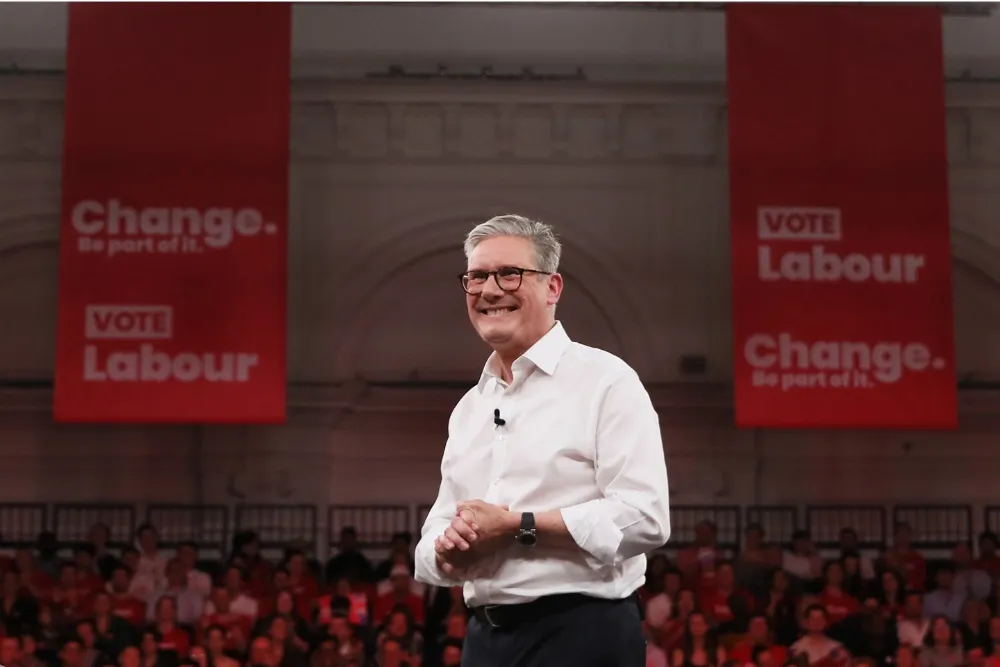The victory of the Labour Party in the parliamentary elections of the UK could not have come at a better time when Europe is on the cusp of change from liberal democracy to Far Right NeoNazi and Neo-Fascist politics of intolerance and xenophobia directed against immigrants of all hues. That the political pendulum would swing to the Left in the UK was becoming clear as indicated by opinion polls, but no one could imagine the Labour could clinch the issue so decisively with a landslide victory. Under the leadership of Keir Starmer, who had promised to present a “changed labour party,” it repeated a record score equivalent to Tony Blair’s in 1997 (418 seats) and won 412 of the 650 seats. As Starmer delivered his first speech after meeting King Charles III, he made his intentions clear. During the run-up to the polls he had refrained from promising the moon to the electorate, but assured them he would do his best to save the country from the chaos, instability and almost irresponsibility that marked the ousted Conservative rule. People had become tired of the frequent change of Prime Ministers – four since 2019 -without any substantive change in their livelihood.
In this sense the victory is not as much for Labour as it is a resounding rejection of the Conservative. The people opted for a change of government after 14 years of Conservative rule. They wanted first and foremost to punish the ruling dispensation for its disastrous record of fiscal austerity and Brexit that left the country fractured, isolated and weakened. Infrastructure and public services turned miserable with sluggish wage and investment growth.
In hindsight, the Tories’ decision to leave the European Union will be haunting the country. The scandal of Downing Street parties during lockdown under Boris Johnson’s leadership and the failure by his successors severely damaged the Conservative’s reputation.
On the other hand, Starmer is a proponent of budgetary orthodoxy and “wealth creation,” while he is favoured by the business community. At the same time Britons affected by austerity, precariousness and the collapse of the National Health Service (NHS) pin their hopes on Starmer whose modesty seems to augur well for the many challenges he will have to face. The party had campaigned on a minimalist platform intended to keep expectations low. Even its campaign rhetoric of “change” was vague about Labour’s proposed means and ends withholding many policy specifics. Not raising the expectations too high could be a smart tactic. The results, however, offer the new Prime Minister the opportunity to do what he likes as he has the parliamentary strength to be daring.
In a sense it is not bad politics of the Labour Party not to excite too much expectations from it as it has promised too little. But the risk is that if Labour is too timid in office to produce meaningful change, it could lose the goodwill.
In any case, the UK under the new dispensation is all set to embark on a new trajectory of development on both domestic and international fronts.
The mood of the moment is one of optimism for a better Britain. In the words of Starmer there is now the “sunlight of hope” in a darkened sky. At a time when the Far Right is advancing across Europe and Donald Trump’s hope of defeating his rival Democrat in the November US presidential poll is rising, the Labour in the UK has got a chance to show to the world that it can work on a liberal social democratic project that offers a light in the presents global gloom.
